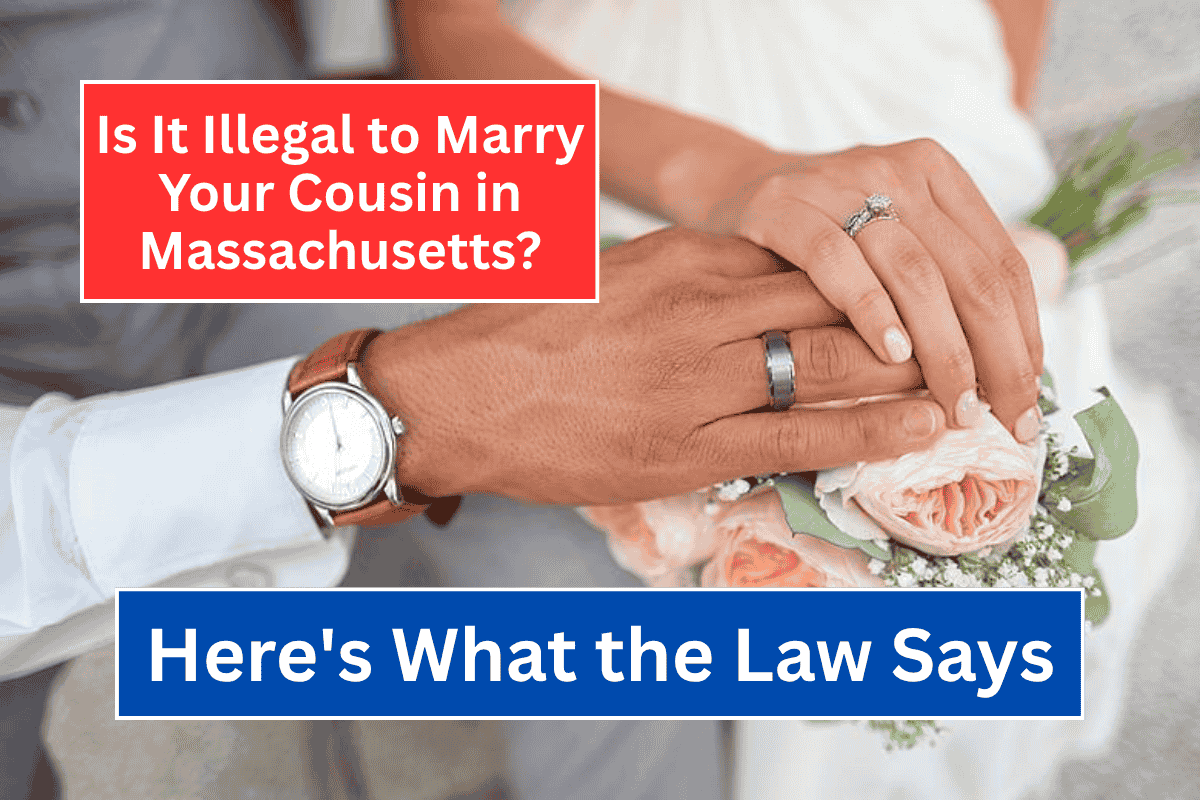Marriage laws can be complicated, and different states have their own rules about who can and cannot marry. In Massachusetts, there are strict guidelines on prohibited marriages, including those between close relatives.
If you’re considering marriage with a cousin in Massachusetts, it’s essential to understand the legal aspects and whether such a marriage is allowed.
Annulment and Prohibited Marriage Laws in Massachusetts
Massachusetts has clear laws when it comes to prohibited marriages and annulments. A prohibited marriage is one that is not lawful, and these marriages are considered void, meaning they are never valid. The state prohibits marriages between certain relatives, and these include marriages between first cousins.
Can You Marry Your Cousin in Massachusetts?
Under Massachusetts law, marriage between first cousins is prohibited. This means that you cannot legally marry your first cousin in Massachusetts.
The law clearly prohibits marriages between close relatives, including parents, grandparents, children, siblings, nieces, nephews, aunts, uncles, and cousins (Massachusetts General Laws Annotated (M.G.L.A. 207 § 1 and § 2).
Any marriage that is contracted between first cousins, or any of the aforementioned prohibited relationships, is considered void by Massachusetts law. It is not legally recognized, and no annulment or divorce is needed to end such a marriage because it was never valid to begin with.
What Happens if You Marry Your Cousin in Massachusetts?
If you marry your cousin in Massachusetts, that marriage would be considered void from the start. There are no circumstances under which the state would validate a first cousin marriage. The law is strict in prohibiting marriages based on consanguinity (blood relation) and affinity (marriage or family ties).
Grounds for Annulment
While marrying your cousin in Massachusetts is not allowed, annulments are legal in certain circumstances if a marriage is found to be invalid. Some common reasons for annulment include:
Consanguinity or affinity: If the marriage is invalid due to family relationships like a cousin marriage.
Nonage, insanity, or idiocy: If either party was incapable of understanding or consenting to the marriage.
Prior marriage: If one of the parties was already married to someone else when the second marriage took place.
An annulment legally erases the marriage, declaring that it never existed, and it can be sought if one of these grounds applies (M.G.L.A. 207 § 14-17).
In Massachusetts, it is illegal to marry your first cousin. The state has strict laws prohibiting marriages between close relatives, including cousins. Any such marriage would be considered void and not legally recognized. If you’re considering marriage, it’s essential to be aware of these laws to ensure that the marriage is legally valid.












